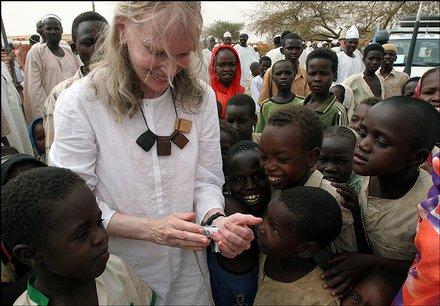 The UN agency for refugees (UNHCR) has dubbed the very popular crossing from Africa to Europe “the most lethal route in the world” for refugees as 3,419 migrants perished at sea in 2014. Last week, there were fears that more than 300 migrants had drowned in the Mediterranean between North Africa and the Italian island Lampedusa. This incident has brought much criticism to Europe’s decision to reduce funds for maritime search and rescue missions. Italy ended its naval service, Mare Nostrum, credited with saving over 100, 000 lives at sea in late 2014. Europe took over this program after Rome voiced concerns that the European Union (EU) must share the financial responsibility of rescuing migrants. The €9 million a month program was replaced by Triton, an operation run by Frontex, the European Union’s border agency. Triton has been heavily criticized as its monthly budget is less than a third (€ 2.9 million) of Mare Nostrum’s. Furthermore, there will be fewer rescue missions, as Triton’s main priority is to control Europe’s borders.
The UN agency for refugees (UNHCR) has dubbed the very popular crossing from Africa to Europe “the most lethal route in the world” for refugees as 3,419 migrants perished at sea in 2014. Last week, there were fears that more than 300 migrants had drowned in the Mediterranean between North Africa and the Italian island Lampedusa. This incident has brought much criticism to Europe’s decision to reduce funds for maritime search and rescue missions. Italy ended its naval service, Mare Nostrum, credited with saving over 100, 000 lives at sea in late 2014. Europe took over this program after Rome voiced concerns that the European Union (EU) must share the financial responsibility of rescuing migrants. The €9 million a month program was replaced by Triton, an operation run by Frontex, the European Union’s border agency. Triton has been heavily criticized as its monthly budget is less than a third (€ 2.9 million) of Mare Nostrum’s. Furthermore, there will be fewer rescue missions, as Triton’s main priority is to control Europe’s borders.
Despite the fact that Europe is allocating less money to the rescue of migrants, illegal migration persists. In fact, as wars wage throughout the Middle-East and North Africa more people than ever are willing to risk their lives to escape peril for a chance of peace. This past January saw a 60% increase in migrants arriving by sea when compared to January of last year.
It appears that the European Community has failed to uphold its ethical and legal obligations to migrants. The UN Convention Relating to the Status of Refugees, 1951, clearly states that no country is allowed to deny entry to refugees fleeing their home country for “political reasons or based on discrimination.” Europe has instituted its own laws that support this under the Amsterdam treaty, calling for the proper treatment of asylum seekers.
However, legal barriers to the recognition of refugee rights persist, as evidenced in the Dublin II Regulation, 2003,which decrees that asylum seekers who have entered the EU without a visa are to be considered illegal migrants, and that it is up to the member state where they first arrived to process them and determine whether or not they will be allowed to stay. This regulation has caused many problems for asylum seekers and serves to overwhelm Mediterranean states, in particular, Italy, Malta and Greece.
These countries attempt to share the burden by moving migrants to be processed in other member states to avoid being responsible for the bulk of them. German officials accused Italy of providing funds to migrants to travel to Germany. The UNHCR has also claimed that Greece has towed around 100 migrant boats back into Turkish territorial water to avoid being overwhelmed by refugees. This not only contravenes international human rights, but is extremely dangerous. It resulted in the deaths of 12 people in January 2014, whose boat was capsized “while being towed at high speed by a coastguard vessel.”
Most migrants rarely stay in Southern Europe and have no problem waiting to be processed in richer countries such as Germany, France, and Sweden where they prefer to reside. Figures show that in 2013 these countries took on the most asylum applications in Europe, as Germany led with 126,705, France had 64,760 and Sweden with 54,270.
The Dublin Resolution risks destroying Europe’s vision for open borders in the Schengen area. Instead, Cecilia Malstrom, a Swedish politician and EU commissioner for home affairs suggests a ‘distribution key’ be instated where countries that have scarce migrant populations would be legally forced to take on more.
Amidst the rise in illegal migration, Europe has seen an increase in xenophobia. Radical political groups such as United Kingdom Independence Party (UKIP), France’s Front National, Sweden Democrats and many others are becoming increasingly popular with their anti-immigration platforms. Yet, Europe needs to face facts and accept that large numbers of migrants are making their way to the continent.
The next step is to view migrants as a solution to issues, not as a problem. Birth rates across Europe are drastically low, and many European states are home to some of the world’s oldest populations. This is where migrants can be beneficial, as in 2013 asylum seekers aged from minors under 18 to 34 accounted for 78% of all European applicants. This is an opportunity to correct its demographic issues and stop viewing migrants as a predicament, where at the same time acting upon the universal human rights that it preaches.




